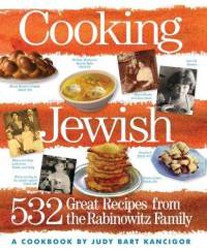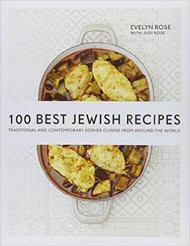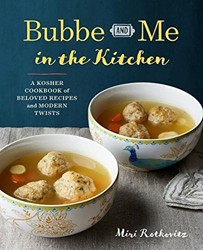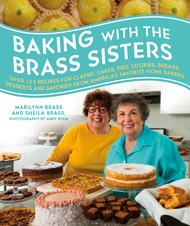On a brisk fall Sunday afternoon at Rizzoli Bookstore in New York City, I had the pleasure of interviewing the charming Australian cookbook authors Gaye Weeden and Hayley Smorgon, whose new book captures Jewish life in Australia through its unusual recipes and moving narratives by the recipes’ contributors.
The two charming young women have four children each and as Gaye avers, “We are proficient cooks.” The authors explained, “We cook contemporary Australian food using fresh produce. We can also put on traditional Shabbat and Festival celebration meals for twenty-plus people, using our mothers’ and grandmothers’ recipes.”
For Shabbat or Holiday meals, the authors usually do a couple of meat dishes with a variety of salad and vegetable sides. Gaye noted that among their repertoire are chicken soup, brisket, Israeli couscous, Persian rice, bok choy salad, and roasted vegetables.
They wrote their first cookbook, Cooking From Memory: A Journey Through Jewish Food (2006) because “[they] wanted to document [their] mothers’ and grandmothers’ recipes as both were in their 80’s [Gaye’s mother and Hayley’s grandmother] and had cooked the same traditional recipes for as long as [they could] remember. [They] both generally cook contemporary Australian cuisine with a touch of Jewish influence. Without actually watching [their mother and grandmother] cook and write down quantities and ingredients, the recipes would have been lost.”
I inquired about the challenge of creating an American version of the book, to which Gaye and Hayley responded: “not challenging really as the journey of migration is a very American story also. Some ingredients were changed and the measurements were translated.” In some cases they have kept the original names of foods. Witlof, I learned, is chicory or endive; stuffed capsicums are stuffed peppers and biscuits are cookies.
Kudos to Mark Roper, whose stunning photographs have captured the people behind the stories — how they came to Australia from Eastern Europe, Europe, the Middle East, Asia and Australia, Africa, and the Americas. They recount the role of Jewish food in their old life or new one, as they were growing up and explaining how what they cook connects them to their heritage and former homelands.
Helen Schon from Czechoslovakia endears herself to you as, after explaining how she came to cook and recounting her life experiences, she explains, “I just thought the end of the world was in the concentration camp, that nothing else was existing somehow. Having a family, having children, it’s a miracle, an absolute miracle.” Do try her Poppyseed Cake.
Hanni Scelwyn of Finland’s Beet Root and Herring Salad is a most colorful and savory dish for a dairy meal. Yuval Ashkar of Israel shares a flavorful Aashpelo (Afghani Rice with chicken and sultanas), Sara Sutton, from Syria, contributed her Stuffed Marrow (actually stuffed zucchini) which has among its ingredients, pomegranate molasses. Lolita Lewis of the Philippines introduces us to Beef and Mixed Vegetable Empanadas. Debrutu Almeneh-Rosenbaum of Ethiopia invites us to try our hand at Injera (Ethopian Pancake Bread).
It is really, literally “through word of mouth” that Gaye and Hayley met all the people featured. They say, “we tasted all the food, we went to their kitchens and we really got to know them.” The cookbooks are in the Holocaust Museum in Berlin, and at the Australian National Library as Gaye told me, “…to document the history of the Jewish People.”
Go through the book and be inspired by the dishes but most of all by the courageous testimonies of these cooks and their very human accounts. Note that a few of the recipes are not kosher. Glossary, index.





